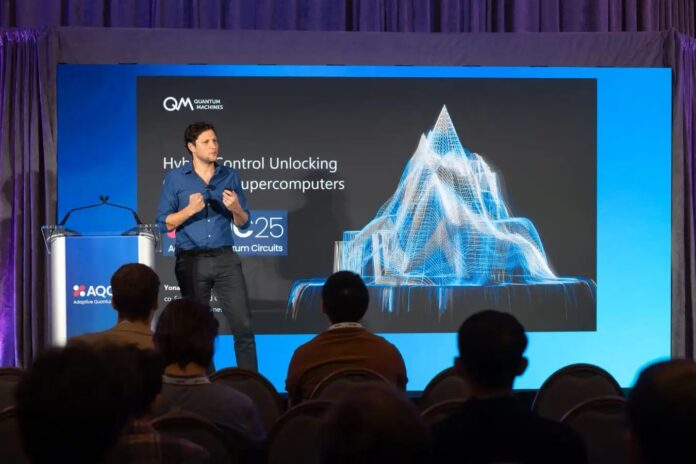Quantum computers, despite their revolutionary potential, cannot function effectively without the support of conventional, classical computing systems. Recent findings from the AQC25 conference in Boston reveal that classical computers are essential not only for controlling and interpreting quantum calculations but also for advancing the very development of quantum hardware. This dependence highlights a critical reality: the future of quantum computing is inextricably linked to continued progress in traditional computing.
The Fragility of Qubits and the Need for Control
Quantum computers operate using qubits—quantum bits that exist in a superposition of states, enabling exponentially faster calculations for certain problems. However, qubits are incredibly sensitive to environmental noise, making them prone to errors. Maintaining qubit stability requires precise calibration, monitoring, and control, all of which are currently achieved through classical computing technologies. Without these classical systems, quantum computations become unreliable and inefficient.
Classical Computing as a Performance Bottleneck
Experts at AQC25, including Nvidia scientist Shane Caldwell, emphasize that a fault-tolerant quantum computer capable of solving real-world problems will require a classical computing infrastructure at the petascale—the scale of the world’s most powerful supercomputers. Even when a quantum computer runs efficiently, its output must be decoded from quantum properties into traditional formats, a process that itself relies on classical devices. Pooya Ronagh from 1Qbit noted that the speed of future quantum computations will be limited by the speed of classical controllers and decoders.
Leveraging Classical Techniques for Quantum Improvements
Researchers are actively applying classical methods to enhance quantum performance. Benjamin Lienhard at the Walther-Meissner-Institute demonstrated how machine learning algorithms can improve the readout efficiency of superconducting qubits. Similarly, Mark Saffman at the University of Wisconsin-Madison is using classical neural networks to refine qubit readout for cold-atom-based systems. This integration underscores the fact that classical computing isn’t just a support tool, but an active driver of quantum progress.
The Role of Classical Computing in Quantum Hardware Development
IBM’s Blake Johnson presented on advanced classical decoders being developed for their planned quantum supercomputer by 2029. The company’s non-traditional error-correction scheme is heavily reliant on efficient decoding. Quantum Machines CEO Yonathan Cohen explained that closer integration of classical computing with quantum processing units (QPUs) will push the limits of integrated system performance. Even virtual models of quantum computers—digital twins—are being developed using AI, as demonstrated by Izhar Medalsy at Quantum Elements, to optimize hardware design.
Collaboration Between Quantum and Classical Experts
The Quantum Scaling Alliance, co-led by Nobel Laureate John Martinis, exemplifies the need for collaboration between quantum and classical experts. The alliance brings together qubit builders, classical computing companies like Hewlett Packard Enterprise, and materials simulation specialists such as Synopsys.
The message from the AQC25 conference is clear: the advancement of quantum computing depends on a strong foundation in classical computing. Experts who have dedicated their careers to traditional systems are now critical to making quantum technology viable.






























